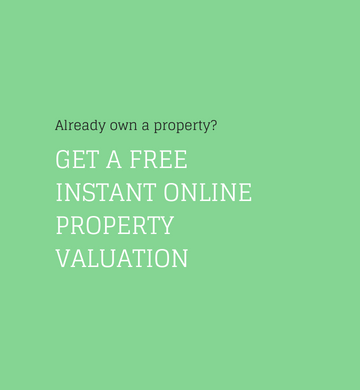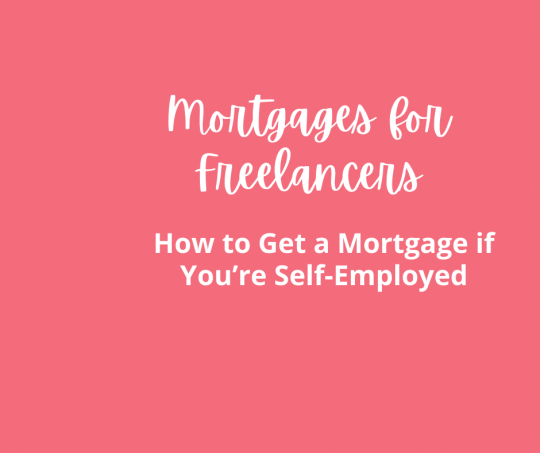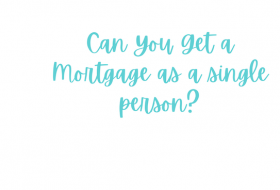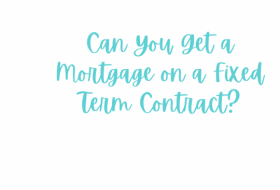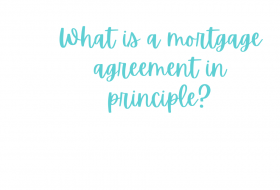Are you a freelancer dreaming of buying your first home, but wondering how you might get a mortgage?
You may have been led to believe that you can only get a mortgage on a property if you are permanently employed.
Admittedly, things aren’t always straightforward when it comes to getting a mortgage as a freelancer.
But here at Move Engine, we believe that your work lifestyle shouldn’t stop you from getting a mortgage. And we want to help you make your dream a reality.
The good news is, getting a mortgage when you’re self-employed is possible.
Let’s look at what lenders might consider, what you can do to improve your prospects, and any other questions you might have.
Is it Hard to Get a Mortgage as a Freelancer?
Not necessarily. It all depends on your circumstances.
For example, if the nature of your freelance work means your income is sporadic, many lenders will view this as a risk that you may not be able to meet your mortgage repayments.
Also, mortgage applications which are declined (perhaps because of your work status) get reported on your financial history records. This could affect future applications, so it’s wise to prepare as much as possible first.
This doesn’t mean getting a mortgage is an impossible task.
In fact, there are many lenders who specialise in mortgages for freelancers. Perhaps you have had a few months where work was sparse, yet you had other months where work was plentiful. Your income history may show that overall, you’ve had a successful year financially. Sometimes, this is where a mortgage lender that relies too much on technology, might not be right for you.
An expert mortgage broker or adviser will be able to look at your situation, and match you to the best lender for your circumstances. Having someone on your side who is aware of your individual position can make the house-buying process a lot smoother for you.
The most important thing is to make sure you are not underprepared.
Whether you are looking for your first step onto the property ladder, or searching for your dream home, learning what you need to know about applying for a mortgage as a freelancer is key. Luckily, in the rest of this guide we are going to explain how you can do that. Here are some simple steps you can do to make things easier:
Budgeting Your Income
A lender will want to see how well you manage your money to be satisfied that you’ll be able to afford and meet your monthly mortgage repayments. If budgeting isn’t something you do already, then it’s a good idea to get into the habit of doing it.
For example, perhaps you always make sure that you have a minimum income each month to be able to pay your rent and bills, but then run out of money before the end of the month. Knowing what you can and can’t afford is a really important first step.
Need help with this? Sign up to our free app to help you get prepared.
Regular Record-Keeping
As a freelancer, you should be keeping records of your income and expenses, and reporting your earnings to the HMRC each year for tax purposes.
Make a habit to do this regularly if you aren’t already, so that you can be in a position to supply the right information when required.
Proof of Earnings
A lender will need to see evidence of your income, to be certain you can afford to repay your mortgage. This may be for 1, 2, or up to 3 years, depending on your circumstances, which we’ll look at next.
What Information Do I Need to Provide to Get a Mortgage?
Figuring out what information you need to provide is a good next step.
Exactly what you need to supply in terms of income proof will depend on the type of freelance work you do, as below.
Getting a Mortgage as a Freelancer if You’re Self Employed
Sole Trader
If you are a sole trader (selling goods or services as the only staff member of your business) you are responsible for telling the tax office (HMRC) how much you earned from your business within the last tax year.
When you complete your tax return (also known as self-assessment for tax), this will generate a form called SA302. This document can be shared with lenders as evidence of your income for the most recent (and any previous) tax year, as long as you have submitted your tax self-assessment.
Limited Company Director
If your freelance work is through your own limited company, your trading accounts of income and expenditure will be looked at. They will also look at how much you pay yourself. These accounts will need to be certified by a chartered accountant. Accounts which haven’t been signed off by an accountant are unlikely to be accepted.
Whether you do business as a sole trader or a limited company, lenders will usually want to see your income records for up to the last 3 years. This is so they can see evidence of regular or steady income. If you’ve not been in business that long, don’t worry. Some lenders will consider 1- or 2- years’ worth of accounts, possibly less.
Things that could work in your favour might be the industry you work in, or a steady growth in turnover for your business. A sector with a high demand for your service might mean that regular, consistent work is more likely.
We have several specialist mortgage advisers who would be able to look at your particular circumstances and determine the likelihood of you getting a mortgage. Click here to be matched with one today.
Getting a Mortgage as a Freelancer on a Fixed Term Contract
If you are on a fixed term contract and employed by an organisation, your circumstances will be different to someone who is seen as self-employed.
Often it will depend on the contract you have, the type of work you do, your level of experience and how long your contract has left. As there are quite a few things to consider we recommend you see our post: Can You Get a Mortgage on a Fixed Term Contract? And if in doubt seek advice so you know where you stand.
How Much Can I Borrow As A Freelancer?
One of the more challenging things as a freelancer is working out how much you can borrow. Lenders do this by looking at how your income is structured.
Depending on how your business is set up, they will look at it in one of three ways:
- Sole Trader – This will be based on your net income (your earnings, less expenses, tax, National Insurance, etc.). Some lenders will look at your total revenue, whereas some will only look at the figure after income tax has been deducted. Based on this, some lenders may be more likely to approve an application than others. That’s why it’s important to pick the right lender or get a mortgage broker to help.
- Director of a limited company – Mortgage lenders will look at the salary you get from your company, and some may also include any dividends you receive from the business.
- Contractor – As a contractor, your income will likely be calculated based on your daily rate, or the combined value of your contracts over time. However, in some cases lenders may choose to use one of the other two methods instead.
Once your income type is determined, how much you may be able to borrow will then be worked out as between 3 and 5 times your annual income. As confusing as it sounds some lenders are willing to lend you more money than others, which is why there is a range. They will also look at your personal expenses, loans and things like whether you have children before deciding a final figure.
If you’re not sure about your income structure or affordability, it’s best to speak to a mortgage broker or adviser who can understand your individual circumstances and look at which lenders can help you. The first chat with them is often free so you can get that peace of mind before going out to start looking at homes.
How Much Deposit Might I Need?
As some lenders may view freelancing as risky and not as stable as regular employment, a deposit of 25% or higher can help improve your chances of getting a mortgage.
The larger your deposit, the less you will need to borrow. This works in your favour because it keeps the mortgage repayments lower and more affordable. It also offers lenders more assurance as the total mortgage amount you need is lower than the value of the property.
On the other hand, if your earnings are high and consistent, there are some lenders who will support an application with just a 5% deposit. The key is knowing who those lenders are. You can research it on their websites or look into finding a mortgage broker or adviser who can help with that.
Are There Specific Mortgage Products for Freelancers?
While there are different types of mortgages, there isn’t a mortgage product that is specific to freelancers. What is different as we have previously mentioned is how lenders work out your income.
You may find that for some mortgage products you simply don’t match their minimum criteria.
Your application will be assessed on how much you earn, what you can afford, your deposit and your ability to repay. These are the factors that will determine which mortgage deals are available to you. You also want to consider what mortgage features are important to you. Such as overpayments, early repayment charges and other fees.
Getting a Mortgage as a Freelancer with Bad Credit
We understand that not everyone has a perfect history when it comes to their credit file. Things like a low credit score, defaults on loan payments and other factors such as debt-management plans can affect the type and number of deals available to you. The good news is there are lenders who specialise in applications from freelancers with a less than perfect financial history. Again, a specialist mortgage adviser or broker can help with this.
Book an appointment to be matched with a mortgage adviser who works with freelancers
Getting a Joint Mortgage as a Freelancer When One of You is Employed
Do you want to apply for a mortgage on a property with your partner? If one of you is employed, this could work in your favour in terms of stability of income. However, it does depend. There are some situations where the lender chooses to not accept your income in how they work out what you can afford. And in some cases, the person who is self-employed with a flexible income may be viewed as being dependent on the applicant who is in permanent employment. This means it could reduce how much they would be willing to lend you and your partner.
Again, that’s why finding an expert who understands your personal circumstances is so important, so they can help increase your chance of success in buying your dream home together.
Top Tips for Getting a Mortgage as a Freelancer
In summary, getting a mortgage as a freelancer can be a lot to get your head around. But the good news is many people do manage it each year. The key is to not look at it all at once. Break it down into simple manageable stages and take it one step at a time.
Here is a quick recap of our main tips to help you make things easier for yourself:
- Work on your finances including budgeting and record-keeping
- Work out how your income is calculated to get an idea of your affordability
- Get copies of your SA302 tax self-assessment forms – the more history, the better
- Hire an accountant if you haven’t already, to get your accounts certified if needed
- Look at your credit history and work to improve any negative factors
- Avoid gaps between contracts (if you are an employed contractor)
- Build as large a deposit as possible to reduce the loan amount required and lower your risk as a borrower.
- Speak to one of our mortgage advisers for freelancers to see what’s possible for you.
Your Next Steps
Buying your first home can be a confusing and daunting process. From knowing the steps involved and in which order, to working out how to get a mortgage.
To make your journey as smooth as possible, we have a free Getting Prepared – First-Time Buyer App for guidance to help you on your way to making your dream come true. Click the button below to learn more.
Your home may be repossessed if you do not keep up repayments on your mortgage.
There may be a fee for mortgage advice. The actual amount you pay will depend upon your circumstances.

